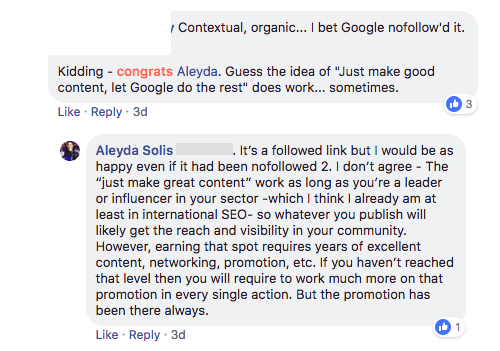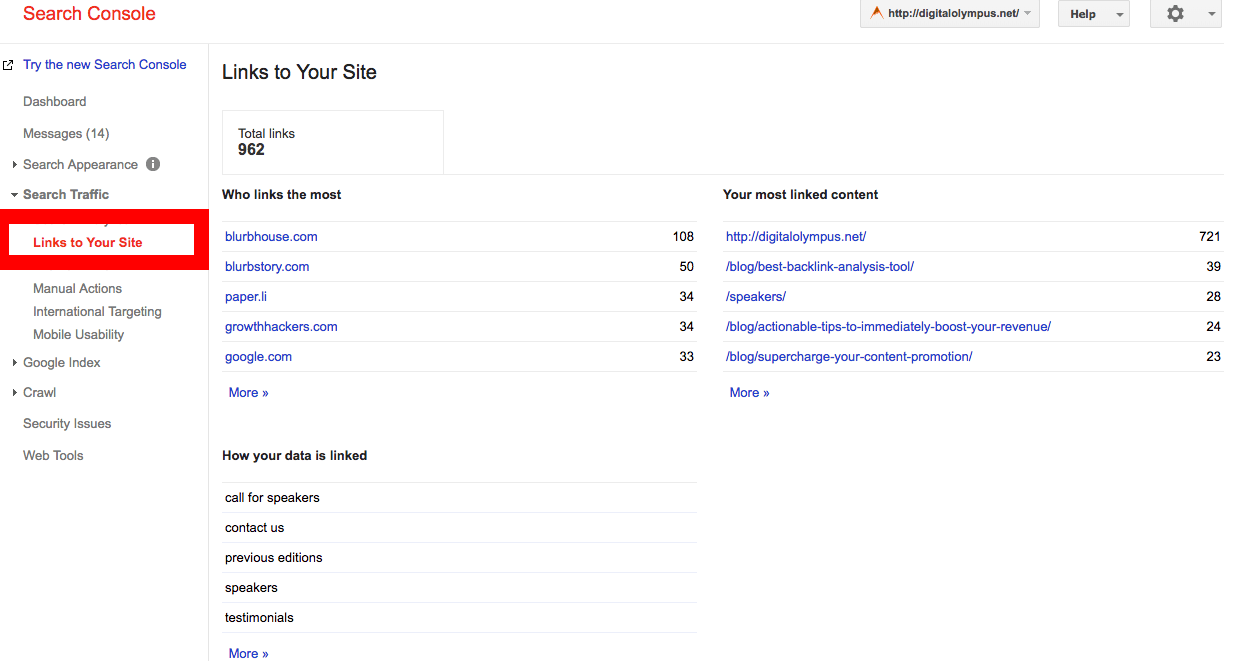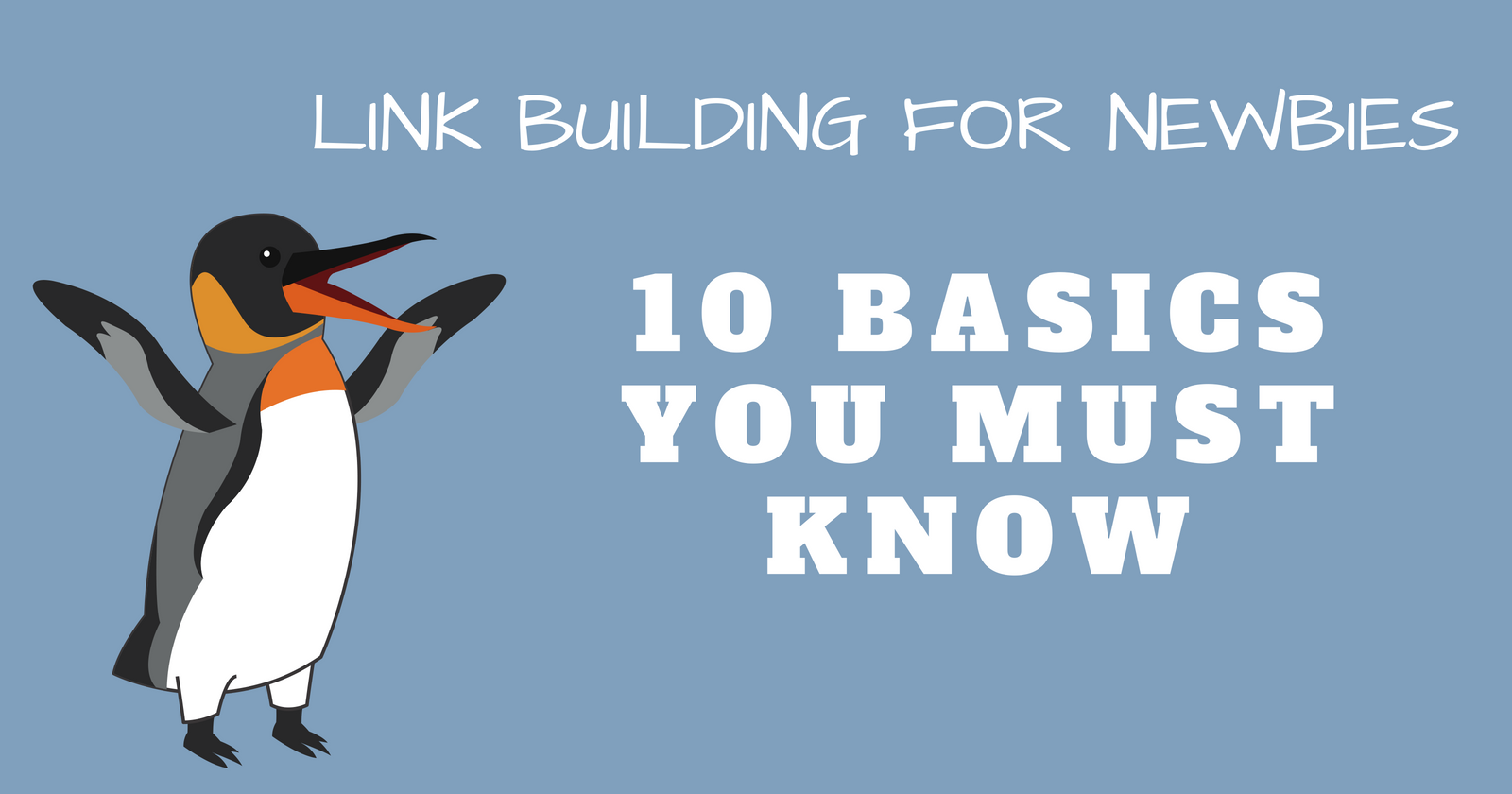In the offline world, people, companies, and the traditional media act as backlinks, promoting and endorsing various services and products. The more people recommend a certain brand, the more popular it becomes.
The same logic applies to the way Google operates: the more websites with good reputation refer to your site, the higher your website appears in the SERPs.
In an effort to explain the benefits of investing your resources in link building, this article will focus on the advantages of link building for SEO, its basic definitions, and other fundamental components of this process.
1. Why Link Building Matters, or Why Links Are Worth It
Have you ever wondered why Wikipedia ranks so well in Google?
It’s because links play a crucial role in organic search rankings. And Wikipedia has accrued more than 10 million links over the years.
Links and brand mentions are two of the top reasons why people visit a website.
Links matter because links impact your site’s visibility in Google and other search engines.
You want to ensure your brand is visible so your target audience can easily find you when they need you, whether it’s to buy a product or get information they need to make a decision.
2. Link Terms You Need to Know
Backlinks
Links that originate on a referring domain and point to one of your webpages are most commonly known as backlinks in our industry.
For example, if Search Engine Journal were to link to Wikipedia, then Wikipedia would have a backlink from Search Engine Journal. SEJ would be the referring domain and Wikipedia would be the referent.
You may also hear these types of links referred to as inbound links or incoming links.
In the Search Console, Google refers to these as “Links to Your Site.” However, most of the popular SEO tools call these backlinks.
Internal Links
Links that point from one webpage of your site to another page of your site are known as internal links, or website navigation.
For example, this is an internal link to SEJ’s Link Building Guide, a page that also exists on the searchenginejournal.com domain.
These types of links direct users to various pages or material within your site. As part of their navigational purpose, such links also play a significant role in SEO and can improve a page’s organic search rankings.
3. Link Building vs. Link Earning
Getting links organically can increase your website authority, drive traffic, and expose your brand to more people.
As Anna Crowe put it in A Guide From Link Building to Link Earning,
Link earning is about creating trustworthy, awesome content and promoting it like crazy.
Earned links are the ones you acquire naturally. You can’t manually build these, automate them, or buy earned links.
As the name implies, you have to earn them. (Here are 10 types of content that will earn links.)
You do this by creating link-worthy content – or curating it.
There are other ways to earn links, including:
4. The Type of Links: The Good, the Bad and The Ugly
Getting a natural link doesn’t happen by accident. You have to be a hard-working influencer or trusted authority in your industry.
Let me explain.
Some time ago, international SEO expert Aleyda Solis earned a link in one of Google’s international SEO guides.
Someone from the SEO community suggested that Google decided to do this simply because the quality of Solis’ article was good. Here’s how she replied:

Here are a few types of links you need to know:
Natural, Editorial Links
That’s exactly the type of link that Solis received. On a general note, linking to a site might only happen if you’re talking about this brand. So PR plays an important role in this instance and so does general brand’s visibility.
In fact, that’s the reason why a lot of companies are heavily investing in building relationships with influencers because the latter are helping companies to acquire links, directly and indirectly.
Manually Created Links
These links are mostly generated through an outreach process.
If you’er trying to build authority for a specific page or piece of content to help it rank well in Google, you can acquire such links via:
- Manual outreach: This is my favorite strategy. Not only are you getting links, but you’re also building relationships with industry bloggers, influencers, or journalists. However, this approach is extremely time-consuming.
- Automated outreach: Automated outreach implies sending the exact same template to every blogger. Typically, link builders do some legwork first to put together a substantial list of emails, and only then will they push the ‘send’ button. Even though this strategy seems to be more scalable from a business perspective, it has a lot of downsides, such as your email hitting a wrong person’s inbox.
Self-Created, Non-Editorial Links
Such links aren’t considered to be of good quality so we highly recommend avoiding building them. In the past, self-created links were massively abused by the SEO industry. As a result, Google began devaluing them or even penalized sites that had too many links of that kind.
Most commonly, these links are coming from:
- Blog comments that are not moderated.
- Press releases that have links with specific keywords.
- Guest posts.
- Advertorials.
- Embedded infographics.
- User profiles.
Paid Links
Another type of link you should avoid is paid links. This one is risky and can get you penalized.
Either you pay another site to link to yours or you agree to link to a site in exchange for payment. This is against Google’s guidelines.
Learn more in Link Building Techniques: The Good, the Bad, and the Ugly by Jeremy Knauff.
5. Which Inbound Links Are Most Valuable for Your Site and Why
There are many types of inbound links. But which ones are the most valuable?
Without a doubt, the best type of links are those that are placed on sites with traffic-generating potential. This is because those links aren’t just simple links, they’re bringing you potential new clients/customers/users.
User-generated content has the potential to drive significant traffic to your site.
The best examples of this are Quora and Reddit. Both sites have tons of topics where users exchange their opinions and share links to sites that they believe are relevant and helpful.
6. Quantity vs. Quality
Are you better off acquiring easy-to-get links from less authoritative sites, or will a few links from credible websites help more?
Tony Wright says that quality links are more important than the quantity.
In the quantity vs. quality debate, it really depends on your situation – your industry/niche, what kind of links your competitors has, and many other factors.
Personally, I try to keep a balance between having links from smaller sites and highly popular ones. It’s better to have a few links from sites that aren’t as frequently visited as Wikipedia is, rather than spending sleepless days and nights on trying to achieve something unattainable.
7. Anchor Text & Anchor Cloud
A diverse and natural-looking anchor text distribution plays a role in your site’s rankings.
If done correctly, you’ll be on the first page of search results. If you over-optimize your anchor text for keywords, you will likely feel the wrath of Google (either in the form of a manual action or an algorithmic ranking downgrade).
The textual part of the anchor (your anchor text) indicates the subject of the content you’re linking to. The anchor also has an href attribute with the specified target link. A lot of people also refer to an anchor as an anchor tag.
8. Link Relevance
Google understands the content we create and classifies sites, which means we have to deal with another factor:
Relevancy.
For example, a link from Wikipedia on a specific topic can be relevant for any type of site. On the other hand, a link from SEJ will be more beneficial for a site in SEO or digital marketing.
9. Link Authority
The best links come from domains within your niche and that have the highest authority.
Authority in our case is a combination of different metrics (e.g., popularity, number of referring domains and their quality).
For instance, a link from Wikipedia is obviously much more powerful than the majority of links out there because this site has a gigantic backlink profile and attracts tons of traffic.
Learn more from Jenny Halasz in Link Relevance vs. Authority: Which Do You Want?
10. How to See Which Sites Link to Yours (Your Backlink Profile)
The most effective and accurate way to learn about sites that are referring to you is to use Google Search Console.
After you log in, navigate to Search Traffic > Links to Your Site:

However, there are a couple of issues with the data Google provides:
- You get to see a list of all websites that have ever linked to your, so you can’t tell whether a link was removed.
- You can’t check pages that are linking back to you because Google doesn’t display such information.
- Because you can’t check which pages are referring to Google, you don’t know what anchor texts are being used. You can only see an overview of this.
If you’d like to find the missing part of the data, then you can use tools such as Majestic, Ahrefs, SEMrush, or Moz.
All of them allow you to see what kind of pages are linking to your site, links that no longer exist, information about anchor texts, and tons of other useful insights.
Conclusion
This article has covered some of the basic philosophies of link building and link earning.
While the industry is continuously changing – as are the strategies and tactics we use to get links – never forget that stellar content without links won’t get you far.
More Link Building Resources:
- Link Building 2018 Guide: The Best Ways to Acquire & Earn Links
- How to Build Quality Links – Not Quantity
- High-Quality Links vs. Low-Quality Links: What’s the Difference?
Image Credits
Featured Image: Created by author, July 2018
All screenshots taken by author, July 2018





